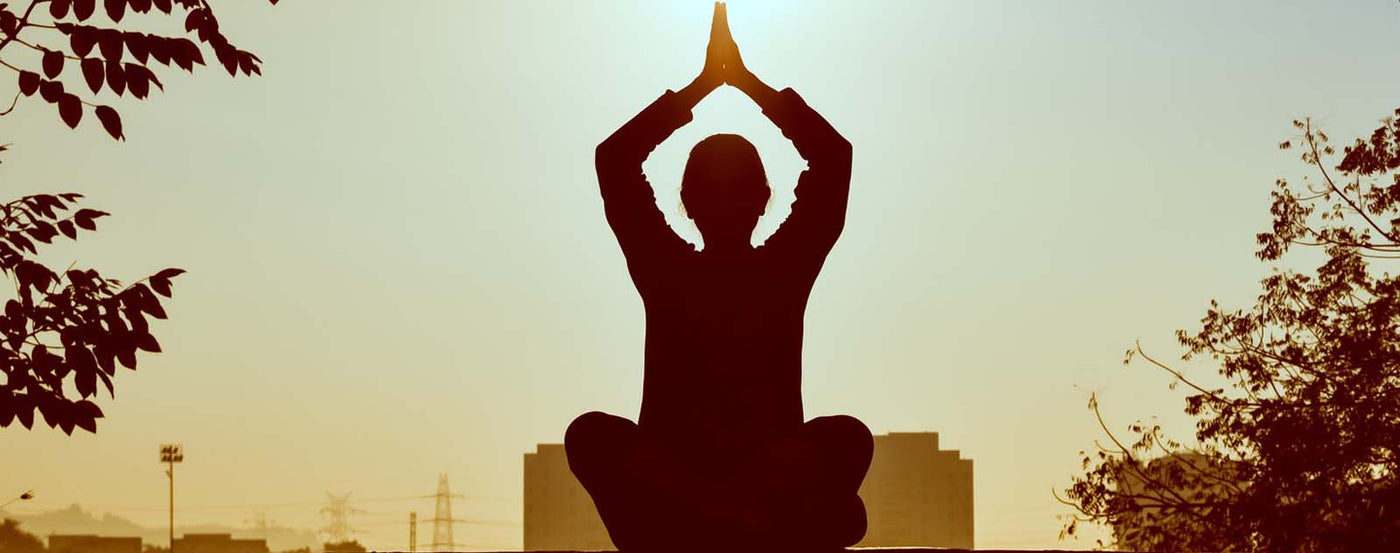Your Cart is Empty
🙏 La livraison est offerte sur tous vos achats ! 🙏

In today's hectic and hectic world, there is a quiet revolution underway. An ancient and sacred practice which is enjoying a period of unprecedented popularity among religious and non-religious alike.
Whether it's business executives, school kids in classrooms or ordinary people they all swear it helps them become more productive or deal with the stress of modern life .

It's a difficult word to define, but in its simplest form it means to live purely in the present moment, to be careful what you do, how you do it .
There is a vast and bewildering array of meditation techniques available today, but in general what they all aim to develop are the qualities of self-awareness, focus and compassion - and finally, insight and wisdom.

Most spiritual traditions include some form of meditation, which involves quiet introspection or religious contemplation.
But this are the Buddhists who put meditation at the very heart of their philosophy and their system of beliefs. For them, meditation is an important component of their path to spiritual awakening, enlightenment.
Over the centuries, a great variety of meditation practices have developed within the various Buddhist schools.

Buddhism asks its followers to understand the world and themselves in a profound and transformative way. If they succeed, they are considered "awakened" or Buddha.
Meditation is one of the tools Buddhism uses to achieve this. It already existed in the Hindu tradition, and the Buddha himself used meditation as a means of enlightenment.

Over the centuries, Buddhism has developed many different techniques: for example, mindfulness, benevolent love, and visualization.
A knowledgeable meditation teacher can impart specific techniques depending on individual needs.
Various schools of Buddhism use meditation in different ways. In a Tibetan tradition, meditators can use a mantra that is repeated to help focus their mind and that embodies the truth of Buddhist teaching.

In a tradition Theravada, mindfulness can be developed by paying attention to the breath , to the body and feelings, or to the stream of ideas and images that move through the mind as meditators sit and observe each other. But what Buddhists get from meditation is more than calm.
For effective meditation, your environment is as important as your concentration. We have listed here statues,

You must be comfortable meditating; if this helps, use a cushion or chair. The natural curve of your spine should allow your diaphragm to move freely when you inhale and exhale. Focus your attention on the sensation of the air flowing in and out of your body.
As you concentrate, you may experience a calming state of clarity and natural focus. This is how the path to enlightenment began for Siddhartha himself.

Some people think that meditation is similar to prayer. Prayer is about focusing on a higher power, usually a deity. People pray for different reasons, sometimes to serve a deity, sometimes to express their beliefs, or sometimes to ask for help.
Meditation is about the practitioner's guided transformation through their own efforts. The proof is in mindfulness: you are just paying attention to your own body and mind.

In Tibetan Buddhism, where the meditator can visualize a Buddha or lives freed from earthly suffering, it is always understood that this image is created by the imagination and that ultimately the meditator calls upon his own higher potential for assistance. A Buddha seen in meditation is considered ephemeral, like everything else in human experience.
We are going to present you some examples of how meditation is used in everyday life.

Dr Anthony Seldon, principal of Wellington College in England, introduced mindfulness in her school: "It has made the students calmer and more self-aware. Teachers notice the difference when they have quiet times. Classes are more harmonious and more productive. The same goes for teachers. meetings with adults when we start with a mindfulness session. "

Jenny Edwards CBE, Foundation for Mental Health: "Mindfulness meditation helps people change the way they think and feel about their experiences, especially stressful ones. By paying attention your thoughts and feelings, you become more aware of them and better able to deal with them. Mindfulness helps induce relaxation, which is a physiological response that slows the heart rate, lowers blood pressure, and lowers blood pressure. stress hormone levels. "

A prisoner from HMP Wymott: "The practice of meditation works for me. It helps me to be calm, relaxed and not to get angry or irritated. It helps me not to react badly to people and to take their opinion into account. Recently, when I got hooked with someone, instead of exploding, I left. "

Paul Merle, 64 year old retiree: "I have been meditating for 15 years but not continuously. I think it helps you calm down, appreciate things around you and deal with tribulations To anyone who thinks about meditation, I would say, "Give it a try, especially with full awareness, because it is not difficult, you have nothing to lose."
.Comments will be approved before showing up.